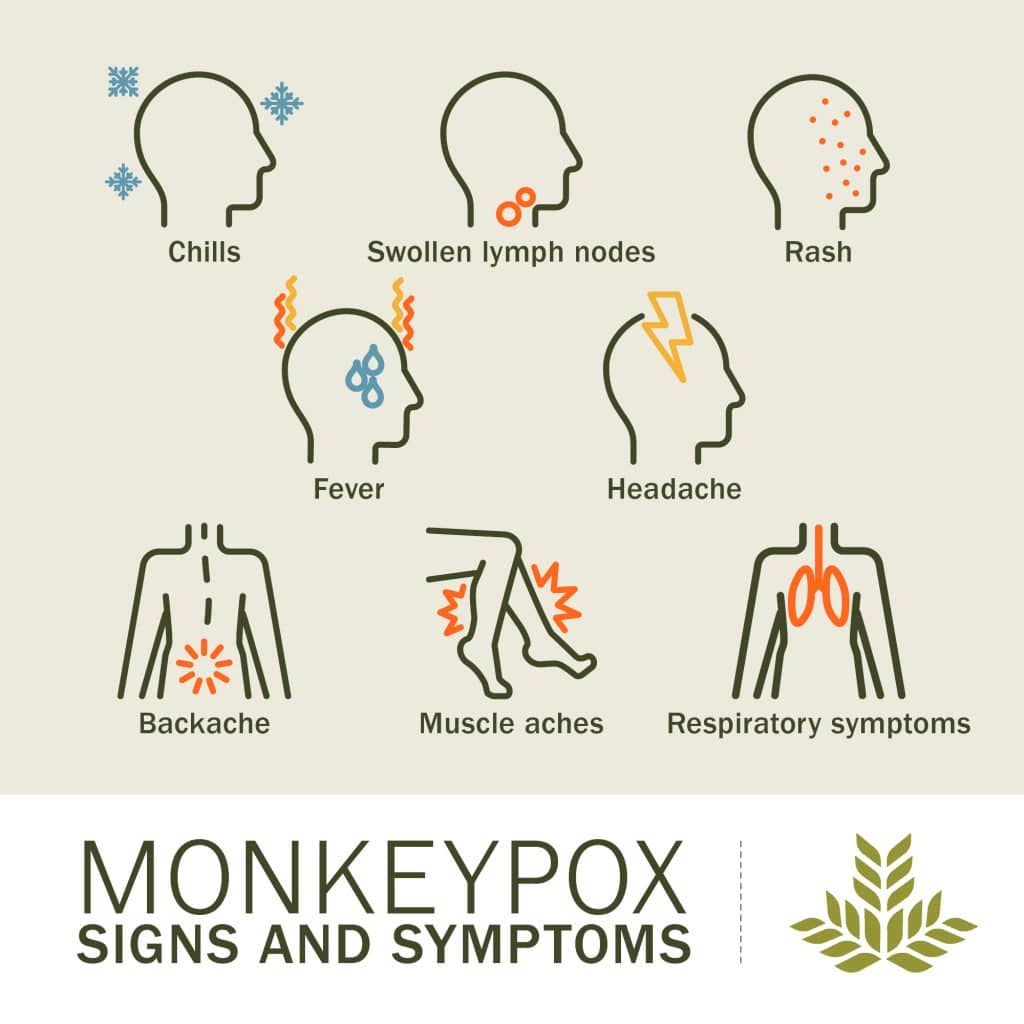An outbreak of monkeypox has recently spread across several countries that don’t normally report monkeypox, and it’s made its way to the United States. The virus, which is unrelated to chicken pox, is spread mostly through close contact with someone who has monkeypox.
The first thing you should know is that monkeypox is rare, and the risk of getting it is low. Even so, it’s best to protect yourself by avoiding contact with people who are confirmed or suspected of having monkeypox and washing your hands regularly in case you unknowingly come into contact with someone who does have monkeypox.
We hope this Q&A will help answer some questions you might have and alleviate any concerns.
What is monkeypox?
Monkeypox is a rare disease caused by infection with the monkeypox virus. Monkeypox is part of the same family of viruses as the variola virus — the virus that causes smallpox. Monkeypox symptoms are like smallpox symptoms, but milder, and rarely fatal.
Is monkeypox deadly?
Infections with the type of monkeypox virus identified in this outbreak are rarely fatal. More than 99% of people who get this form of the disease are likely to survive. However, people with weakened immune systems, children under 8 years of age, people with a history of eczema and people who are pregnant or breastfeeding may be more likely to get seriously ill or die.
What are the symptoms of monkeypox?
Sometimes, people get a rash first, which is then followed by other symptoms. Others only experience a rash. Symptoms can include:
- A rash that can look like pimples or blisters that appears on the face, inside the mouth and on other parts of the body like the hands, feet, chest, genitals or anus.
- Fever
- Headache
- Muscle aches and backache
- Swollen lymph nodes
- Chills
- Respiratory symptoms (e.g. sore throat, nasal congestion, or cough)

What should I do if I have symptoms?
If you are experiencing any of these symptoms, the first thing you should do is see your healthcare provider — especially if you notice a new or unexplained rash. Avoid close contact with others, including pets or other animals, until you see your healthcare provider.
When should someone get tested for symptoms?
If you think you have monkeypox or have had close personal contact with someone who has monkeypox, your healthcare provider will be able to help you decide if you should be tested for monkeypox. If they decide that you should be tested, they will work with you to collect the specimens and send them to a laboratory for testing.
- If you’re waiting for test results, you should continue to avoid close contact with others, including pets or animals.
- If your test result is positive, stay isolated and observe other prevention practices until your rash has healed, all scabs have fallen off and a fresh layer of intact skin has formed.
- Remain isolated if you have a fever, sore throat, nasal congestion or cough.
- If you must leave isolation, cover the rash and wear a well-fitting mask.
How does monkeypox spread?
Monkeypox can spread through direct contact with the rash, scabs or bodily fluids. It can also spread during prolonged, face-to-face contact, during intimate physical contact and by touching objects, fabrics or other surfaces that have been used by someone with the virus. Additionally, monkeypox can spread through contact with respiratory secretions.
Should I be concerned about going to crowded events?
It is possible to get monkeypox if you have close, skin-to-skin contact with someone who has monkeypox. Early indications are that events with activities in which people engage in close, sustained skin-to-skin contact have resulted in cases of monkeypox. If you plan to attend an event, consider how much close, personal, skin-to-skin contact is likely to occur there.
What treatments are available for monkeypox?
There are no treatments specifically for monkeypox. However, because of genetic similarities in the viruses, antiviral drugs used to treat smallpox may be used to treat monkeypox.
Is there a vaccine to prevent monkeypox?
Because monkeypox and smallpox viruses are genetically similar, vaccines developed to protect against smallpox may be used to prevent monkeypox. Visit the District 2 Department of Public Health website to schedule an appointment for the vaccine.
Who should get vaccinated?
CDC recommends vaccination for people who have been exposed to monkeypox and people who may be more likely to get monkeypox, including:
- People who have been identified by public health officials as a contact of someone with monkeypox
- People who know one of their sexual partners in the past two weeks has been diagnosed with monkeypox
- People who had multiple sexual partners in the past two weeks in an area with known monkeypox
Should everyone who is sexually active get vaccinated?
No, CDC does not recommend widespread vaccination against monkeypox at this time. During this outbreak, people who are sexually active are not considered to be at risk for monkeypox unless their sexual partners have monkeypox or they have had multiple sexual partners within the past 14 days in areas where monkeypox cases have been reported.
Learn More
The information above was provided by the Centers for Disease Control and Prevention. Visit the CDC website for more information on monkeypox, and reach out to your healthcare provider at ngpg.org if you have questions. If you don’t have a primary care physician, visit ngpg.org/providers to find one with availability near you.



